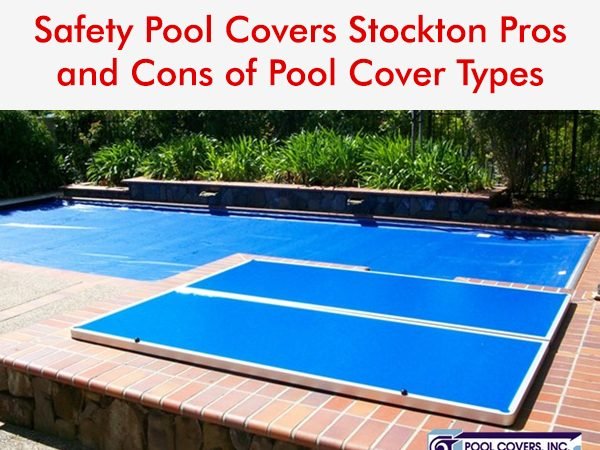
When you want to create a pool environment that’s fun but also safe, you will want to install safety pool covers in Stockton. Besides the main safety features, these types of pool cover provide other benefits, such as keeping out debris, preventing evaporation, retaining pool water heat, and reducing the use of chemicals, among others.
As the seasons change and colder winds start to creep in, you may forego activities outside, including using your backyard pool. Since you won’t use it for the colder months, you should prepare your pool ahead of time.
Before you need to cover your pool again, you may want to prepare for the future and consider your options for when the time comes. Below are some suggestions regarding the types of cover you may use for the colder months – each with advantages and disadvantages.
Standard covers such as a floating bubble cover or tarp material:
Pros: Standard covers are the most basic types of pool covers. They can protect your swimming pool from leaves, twigs, pool toys, and smaller items such as pebbles and sand. They are the least expensive. They float on the top of the water so there is no need to install these. They bubble covers will use the sun to heat the pool during the day.
Cons: These covers don’t last very long and deteriorate in a few years. These covers float on the water so you lose water, heat and chemicals due to evaporation. These covers that float on the surface of the pool water are NOT safe and an animal, child or adult that falls on top of this cover will sink into the pool water.
Safety covers (Automatic and Manual)
Pros: Safety covers are used by most U.S. households, due to solid and mesh materials. They are usually anchored to the pool’s side and will support weight. As they are secured to the surrounding pool area children and animals cannot get under the cover into the water. They keep debris out, but mesh covers allow rainwater to pass through so the water cannot become stagnant on top. Both mesh and solid security covers can support weight better than standard pool covers. Solid options can last from six to ten years, while mesh covers can last from 10 to 15 years.
Cons: Mesh covers allow the rainwater to pass through, so you will have dirty water when you open the pool in the spring. Solid covers, on the other hand, may collect rainwater on the top. If you do not keep the water removed, it can become stagnant, attracting bugs and mosquitoes. It will also lead to the additional weight on the cover, creating unnecessary pressure. It would help if you used a cover pump to remove any water accumulated on the cover.
Knowing the types of pool covers is important. This knowledge will allow you to make a more informed choice to buy the best safety pool covers in Stockton for your budget and needs as you prepare your pool for the coming colder months.









